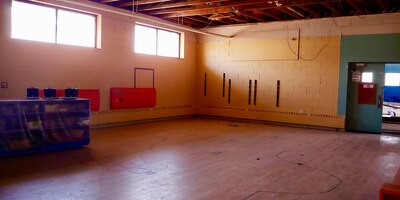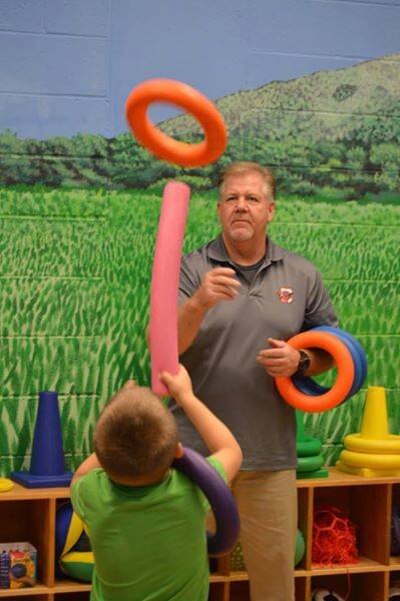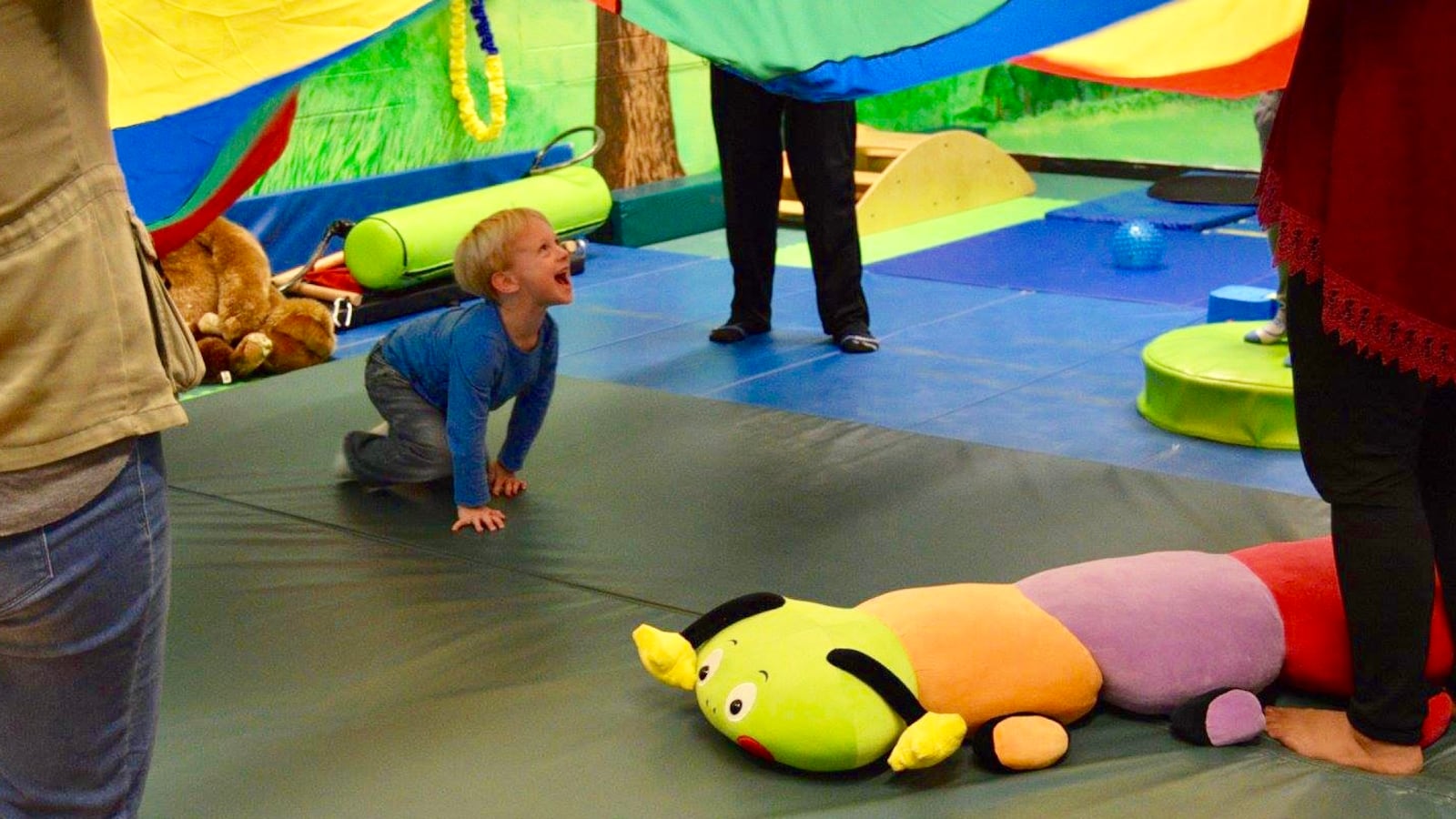A new gym at Bal Swan Children’s Center preschool in Broomfield will feature lateral climbing walls, colorful tunnels, and interactive LED lighting features, with the goal of making physical activity accessible to both neurotypical children and children with special needs.
“It’s just overwhelmingly significant, how anyone can walk in and feel included,” said Debbie Kunz, director of the preschool, where one third of the children have special needs and all classes are integrated.
Made possible by a $35,000 Greenman Gift grant from the Bright Horizons Foundation, the gym is on the cusp of a growing trend for more inclusive physical education. Relatively few playgrounds have specialized equipment to make them more accessible, and it’s even rarer for preschools. And while more districts are hiring adapted P.E. teachers, who have specialized training to help students with disabilities, they’re stretched thin. There’s still no state license specific to these educators.
These gaps have consequences for children.
Shirley Swope, an adviser with PEAK Parent Center, a statewide parent advocacy group, shared a story about a child with cerebral palsy in the Colorado Springs area, who was forced to watch other children playing during P.E. time last year, because teachers weren’t sure how he could participate.
The child’s parents had to work with the school to find creative ways for him to play with his other classmates.
“It’s a pretty common story,” Swope said. “When you have a body that doesn’t allow you to show what you know, then you get underestimated a lot. They were just underestimating his ability.”
Advocates hope stories like this will be less common in the future.

Jessica Jones, director of the Broomfield Early Childhood Education Council, which played an important role in securing the grant that is paying for the upgrade, hopes the gym will help students foster understanding.
“It promotes, at a young age, inclusivity, understanding that you might be different, but you’re still a person, you can do the same things I do, and we can do it together,” Jones said.
Jones said the gym will also be a place where children can find success in physical activities, which will in turn give them a strong foundation for future growth.
“Some kids might need a little more support,” Jones said. “This is not just a whimsical idea. It’s founded in data, in research.”
Tim Davis, a professor at the State University of New York at Cortland, who studies sensory integration and motor skill development in children, explains it is critical — especially in the early childhood years — for kids of all abilities to get moving.

“Preschool age is a critical time for kids to develop strong neuropathways, enhanced motor learning, motor patterns that are really critical for later movement and development,” Davis said.
Davis said it’s crucial for children to play at least 60 minutes a day.
“We know through appropriate motor development literature that kids learn through play,” Davis said. “We need to do a better job at providing environments that help kids to move and play in meaningful ways.”
Across Colorado, there are concerns that children with special needs aren’t getting enough of those opportunities to learn in physical education settings.
“The students with special needs really, truly aren’t getting what they require,” said Bryan Wickoren, an adapted P.E. teacher for Jeffco Public Schools.
Wickoren said while the Jeffco schools superintendent has been supportive, many school districts across the state lack adapted P.E. teachers, and are stretching thin the very few qualified educators they do have, with some teachers working at up to 30 schools a week.
But Wickoren also sees more districts putting resources toward physical education aimed at helping children with special needs. For example, the Douglas County School District recently hired its first adapted P.E. teacher, he said.
“There’s more and more school districts that are seeing the importance of it,” said Wickoren. “It’s improving, but we’re taking baby steps.”
Nearly four years ago, Chalkbeat reported about the lack of a state-approved licensure for adapted P.E. teachers in Colorado. Blocked by budgetary concerns, that licensure still has not become a reality.
Davis, the researcher, said many teachers struggle to get appropriate funding and resources in their school districts for adapted P.E. equipment. However, there are ways to work around that.
“The best sensory playground is outside,” Davis said. “The more we can stimulate kids on a sensory level, the more they will want to do it again. First and foremost, kids are kids, we look at the commonality, not the differences. We all have unique attributes, so let’s celebrate that.”
Education advocates hope Bal Swan’s efforts will raise more awareness across Colorado of the importance of including all children in physical activities.
“Knowing Bal Swan and their mission, this is going to help be a model for other schools and districts,” Jones said.
Georgia Viado, a mom of two preschoolers at Bal Swan, can’t wait for the new facility to open.
“For any kids, learning to control their bodies, to be able to take risks, and having a bigger space in the school where they can do much more gross motor skills, will be amazing,” Viado said. “To have more space to serve more people in more ways is so fantastic.”

